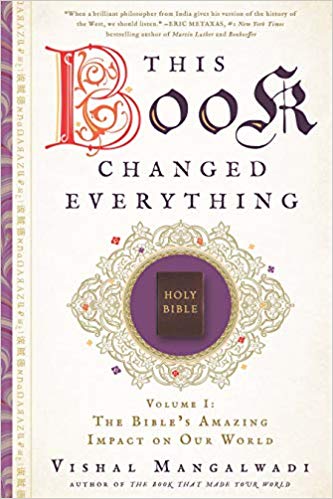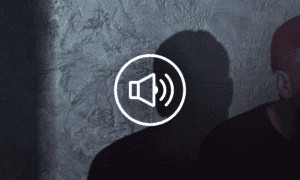At a Glance
We talk about discipling nations a lot—it is in our name! But what does a discipled nation look like? What makes it difference from other countries, communities, and cultures? This week, we discuss real-world examples of discipled nations, and how biblical principles have impacted people for generations after they were first brought into the culture.
For more discussions on Discipling Nations and the Kingdom of God, listen to our episode, “The Role Of The Church.” and “Why Disciple Nations?“
What You'll Hear
Chapter 1: What is a Discipled Nation? (1:25)
- Not a finished work, but a continuing work of being transformed by the gospel of the kingdom of God.
- Every aspect of the culture would be affected and improved.
- We are always either moving towards this or away from it.
Chapter 2: We Need to Be Active (9:12)
- Because it is either improving or deteriorating, the church has to be active in the culture.
- The sacred/secular divide makes us think that we don’t belong in the field of secular culture.
- We need wisdom from the church.
Chapter 3: Real-World Examples (14:50)
- The Reformation discipled Western European nations.
- John Amos Comenius applied biblical principles to education and revolutionized the field, so much so that he is considered the father of modern education.
- Vishal Mangalwadi once told a story of how the Dutch public transportation system is built around an honor system, and the expectation of honesty needed for that to work comes from the Bible.
- In India, there is a strong sense of karma, that people who are suffering deserve it in some way, so there is little compassion for the poor.
- America’s founding documents are rooted in biblical principles.
Chapter 4: We Need to Be Intentional (37:51)
- Young people are being discipled by the culture because they don’t think the Bible is relevant to most of their life.
- Bad ideas are like a virus. We need to protect ourselves from them.
- The influencing power of the culture is more powerful than we realize.
Chapter 5: How Can We Shape Our Nation? (49:09)
- Influencing the culture takes time—years, and even generations.
- We need to take responsibility for our sphere of influence.
- We know that Christ will finish the work in the end.
- Jesus dealt with people individually, which sounds small, but made a huge impact.
- We can only do this with God’s power, not in our own power.
Using the link above, you can read the transcript, listen along, and adjust the speed of the podcast while you listen.
If we don't disciple the nations, the nations will be disciples by the culture
Kingdomizer Training Program
The transformation of our communities and nations begins with each of us. Kingdomizers are individuals who advance the truth, goodness, and beauty of God’s Kingdom in the world in which they live. Our unique Kingdomizer Training Program is designed to equip you and your church to live out Christ’s truth and redemptive love in transforming ways.
This Book Changed Everything
By Vishal Vishal Mangalwadi
Discipling Nations
By Darrow Miller
Quotes
“A discipled nation is a nation that’s been transformed by the kingdom of God. I’d be careful in saying, ‘a discipled nation,’ because when we say that we think, ‘Oh, it’s a process that’s been completed,’ but there’ll be no fully discipled nation until the return of Jesus Christ. But we are to disciple nations, and this means seeing nations being transformed by the gospel of the kingdom of God.” Darrow (3:07)
“Algorithms are set to silver and gold, not to wisdom.” Darrow (13:51)
“There’s a set of powerful, true biblical principles that when they take root in a culture, things begin to change. And two of them would be that all people are created by God in His image with incredible dignity and value and worth. And secondly, God has created people to have dominion, to wisely rule over creation.” Scott (15:54)
“There is an analogy someone told me once. There’s someone in a river, and at some point up in the river, there’s a bridge, and that’s God and all the characteristics of God. So to get towards that we need to swim upstream continuously. Are we ever going to get there in sanctification? No, not until we go to heaven. The idea of sanctification is to swim upstream because our natural tendency as humans is to fall back into sin, and therefore flow downstream. And the thing about that is, number one, you’re not swimming towards God anymore. But number two, you’re also drifting further away from those hallmarks of God and His Kingdom, truth, goodness, justice, wisdom, all of these things. So the same thing happens with nations, because humans are just what makes up nations.” Luke (24:28)
“What makes America exceptional, to the degree that there’s things that make us exceptional, is nothing that we can claim intrinsically in ourselves. It’s all because we’ve been blessed by the Bible.” Scott (37:30)
“If ideas take time, then where do we start? Today. Moving ideas out there that may not become viral for a generation. But if we don’t begin by reaffirming biblical principles, biblical vocabulary, biblical worldview today, it’ll never get to the point where it’s vital in shaping the culture.” Darrow (49:11)
“I think about Jesus himself when he came into the world. The Roman Empire was at its height and if you had big news organizations, they’d be reporting on what was happening in Rome and the fights that were going on and the advance of the Roman Empire. And here comes the King of kings and Lord of lords, the creator of everything into this little outpost, in this little nowhere country into this little stable, and everything begins to change. And I don’t think that process of change has changed. I think that stuff is still going on, in very kind of unpretentious, quiet ways.” Scott (57:14)
“And even in Jesus’s life, he worked one to one. I mean, he healed the ten lepers. That wasn’t one on one, but oftentimes, it was just one person—I will influence this person. It wasn’t like, okay, the city is healed, I can go now. No, it was a single person. And so he got home at night exhausted because he dealt with people individually. That’s really slow. That’s really small.” Dwight (58:31)






